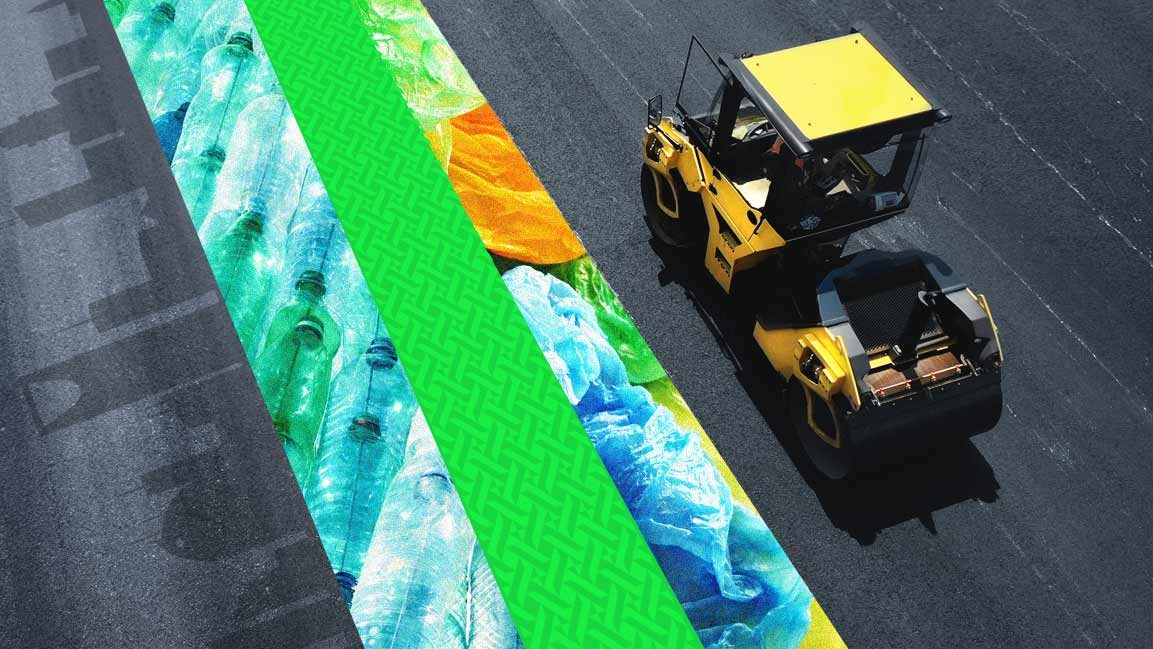- | 10:00 am
Saudi Arabia’s KAUST will now build roads from plastic

Plastic being dumped into oceans and landfills is a major nemesis for environmental protection. But the millions of tons of plastic from the Middle East can’t just vanish overnight. So, can it be put to better use?
An initiative launched by Saudi Arabia’s KAUST may pave the way for a sustainable future, via roads built with plastic.
The journey for the Green Road project has started with the collection of plastic waste from the roadside on a 90km stretch of Highway 55. This plastic pile will now be converted into bitumen or tar through a conventional modifier. The collected waste will be washed, shredded and then melted to form bitumen in a mixing chamber. The bitumen is also heated at a temperature that preserves its binding properties.
The material will be used for constructing a road that runs right through the King Abdullah University campus. It’s meant to demonstrate the use of innovation for building stronger and greener roadways.
Roads constructed using plastic can withstand heavier loads, more traffic, and high temperatures in the Middle East. Plastic lends flexibility to roads, making them last longer to create sustainable infrastructure. Recycling plastic instead of burning it also reduces carbon emissions significantly.
In a conversation with Saudi Gazette, Dr. Najah Ashry said, “The project seeks to meet targets set by both Saudi Arabia and the UN while empowering a circular economy to overcome waste, pollution, and climate change.”
Paving roads with plastic is also cost-effective since it saves more than $650 per kilometer. The material has also been used for building temporary pathways at the Dubai Expo venue to ease the passage of heavy vehicles. Lebanese firm Development Inc. has also developed patented ROGP tech to convert plastic and glass into paver blocks, tiles, and irrigation channels.
Considering the volume of plastic still flowing into the ecosystem, repurposing it as fuel or construction material is a productive way forward. An initiative by KAUST, along with innovation by firms in the region, can turn the tables on plastic pollution.
































